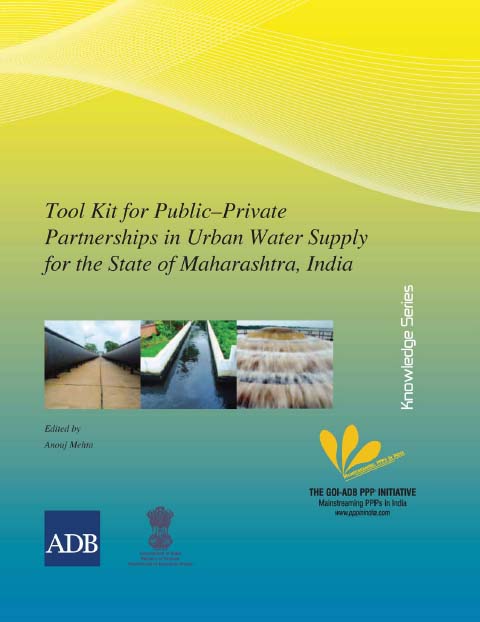
The various possible PPP structures for the sector were studied, and their applicability assessed in the context of the selected sample cities. Consultations led to development of term sheets for these PPP structures, which were identified as most suitable and feasible for implementation.
The above exercise has led to development of this report, which may be considered as a tool kit designed to help decision makers decide whether a particular project might be suitable for the PPP route or not. The tool kit can, therefore, be the basis for approving a project implementation structure as part of the overall project approval methodology.
The project development process in the urban water supply and sanitation sector involves multiple stages prior to implementation. The purpose of the tool kit is to assist the relevant public entities in the state of Maharashtra in developing PPP-based water supply and sanitation projects.
The tool kit detailed in Volume I of the report discusses the assessment of water supply services and details the formulation of project structure for implementation if the PPP route is to be adopted. The tool kit provides information on how to develop a project if a PPP-based option is found necessary and possible for implementation.
Under Phase I of the Technical Assistance project, a broad analysis has been undertaken for the sample cities of Maharashtra to assess and determine the possibility and suitability of PPP-based intervention for water supply and sanitation projects for these cities. The detailed analysis, needed to finalize the PPP option, would have to be undertaken as a component of Phase II of the Technical Assistance project.
It is hoped that the tool kit will be used by the urban local bodies, and other relevant state government departments and decision makers while considering PPP-based implementation of urban water supply and sanitation projects.
Download the tool kit here -
/articles/public-private-partnerships-urban-water-supply-maharashtra-tool-kit-goiadb-ppp-initiative